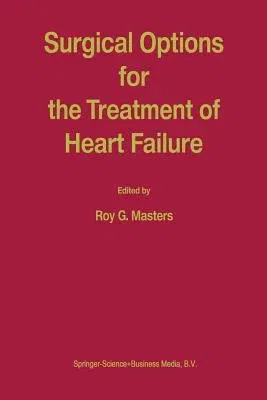Despite the significant decline in heart disease mortaht>' rates over
the last 25 years, heart failure has remained a significant problem. We
are now confronted with large numbers of terminally ill patients for
whom conventional therapies for heart failure have been exhausted and
for whom repeated hospital visits are necessary. There now is a major
thrust towards a management strategy which embraces a comprehensive
approach including vigorous preventive measures and earlier surgical
interventions. This book outlines the major surgical options for the
treatment of heart failure and brings together a very broad base of
opinions with contributions from several outstanding individuals. With
the improved knowledge and techniques to control rejection,
transplantation has become the central pillar in the surgical management
of this group of patients. Unfortunately, because of limited donor
supply the teclmique cannot be applied to large numbers of patients. A
great deal of excitement, however, exists in the potential for
xenotransplantation as a supplement to homotransplantation. The use of
cardiac assist devices has become a reality with several hundred LVADS
and BiVADS implanted throughout the world and cardiac replacement with
total artificial hearts continues to be used successfully as a bridge to
transplantation. We are on the thieshold of the broad application of
assist devices to provide prolonged relief of heart failure and restore
patients to an ambulatoiy home environment and hopefully return to the
work force in significant numbers.


